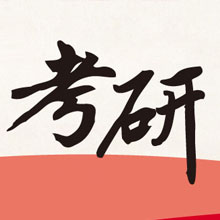新东方 托福词汇之“求赞党praise junkies”
2015-10-27 10:26 新东方
Praise junkies refer to those who constantly seeks/craves praise and attention and highlights everything good they have achieved in order to get praised.
“求赞党”是指那些不断寻求或渴望获得褒奖和人们关注的人。为受表扬,他们会强调自己做的所有好事。
Casey Cowden, 22, describes herself as a puppy asking to have her head rubbed when she brings her latest accomplishment to the assistant manager in her department at the Charleston County Parks and Recreation Commission. "I really love hearing when I'm doing a good job," says Cowden, who doesn't feel that school prepared her for how to behave in the workplace. "It's affirmation that I'm actually a decent person and I'm doing okay."
22岁的凯西·考登讲述她向查尔斯顿公园与休闲委员会的部门副经理汇报工作成就的情形时,她觉得自己就像一条小狗,渴望主人来轻轻拍她的头。“我真的很喜欢听别人说,我做得很棒,”考登说,她并不认为,学校教授了她在工作场合应该怎么做。“这些表扬证明我是一个很不错的人,工作也合格。”
But praise junkies like Cowden might become your boss' pet peeves. "It's exhausting for your boss," says Peggy Klaus, an executive coach and author of The Hard Truth About Soft Skills. "They don't have the time ... to have to constantly reassure you."
但像考登这样的“求赞党”可能会成为老板心里的“大麻烦”。《软技能的硬道理》一书作者兼高管教练佩吉·克劳斯说:“这种事让老板非常劳神,他们没时间……不断地打消你的疑虑。”
So for praise junkies, career experts suggest a few steps to break the habit:
因此 职业专家建议“求赞党”采取一些步骤改掉这个坏习惯:
Praise yourself, privately. Instead of waiting for another person to pat you on the back, keep your own file of accomplishments and kudos.
私下表扬自己。不要等其他人拍着你的后背鼓励你,自己可以记录好个人成就和出色表现。
Learn to bite your tongue. The first step is admitting you have a problem. The second is setting up behavioral cues and reminders to stop you from seeking praise.
学会在适当的时候闭上嘴巴。第一步是承认自己有问题。第二步是设定行为信号和提示,防止自己寻求表扬。
Replace praise with regular contact. Perhaps you don't have a regular meeting with your supervisor. Now is a good time to request one.
用定期联系代替表扬。或许,你和老板没有安排定期的会面。现在是提出要求的好时机。
Celebrate someone else's success. Another surprising remedy: giving praise to a colleague or group of peers.
对他人的成功表示祝贺。另一个出人意料的方法是,表扬某个同事或某一些同事。
编辑:张雨
联系我们
版权及免责声明
① 凡本网注明“稿件来源:新东方”的所有文字、图片和音视频稿件,版权均属新东方教育科技集团(含本网和新东方网)所有,任何媒体、网站或个人未经本网协议授权不得转载、链接、转贴或以其他任何方式复制、发表。已经本网协议授权的媒体、网站,在下载使用时必须注明“稿件来源:新东方”,违者本网将依法追究法律责任。
② 本网未注明“稿件来源:新东方”的文/图等稿件均为转载稿,本网转载仅基于传递更多信息之目的,并不意味着赞同转载稿的观点或证实其内容的真实性。如其他媒体、网站或个人从本网下载使用,必须保留本网注明的“稿件来源”,并自负版权等法律责任。如擅自篡改为“稿件来源:新东方”,本网将依法追究法律责任。
③ 如本网转载稿涉及版权等问题,请作者见稿后在两周内速来电与新东方网联系,电话:400-0551-888。



